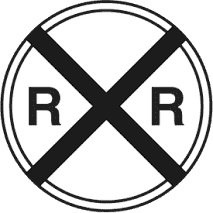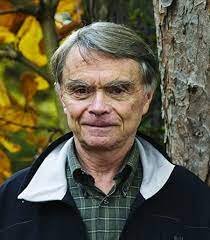Christopher Bayley on Seattle Police Payoffs
Former King County prosecutor Christopher Bayley talks about his book, “Seattle Justice: The Rise and Fall of the Police Payoff System in Seattle." In July 1971 Bayley obtained indictments on charges of criminal conspiracy for his predecessor as King County prosecutor, a longtime city council member, the head of King County’s licensing department, a former sheriff, a former police chief, and 13 Seattle and King County police officers. It was the beginning of the end for the institutionalized corruption system that had operated for decades.
Bayley also describes the progressive Republican local wave in the 60s and 70s focused on reforming. Bayley says today, he tells possible candidates for city office not to run as Republicans.
See Also
What was the police payoff system?
It all involved illegal activities, in other words, illegal under state law, being allowed in the city and the county. And we called it the tolerance policy. It started with Mayor Devin in the 40s because the city fathers, with the best of intentions, thought they could control vice by licensing lower forms of vice, card rooms and things like that, and keep out the bad guys from the East who might come in and try to control all vice.
So because certain things, although illegal, were licensed and others were not, it allowed the police to exercise their discretion. And so the police developed a system of lining their pockets and the pockets of their supervisors by collecting payoffs, saying if you don't pay me, you won't get your license. And it was pervasive and it permeated the entire system. Yes, and it was not a secret. There were elections for mayor over the years where some mayors would be reformers, others would say open things up. But after 1940, it was an acknowledged fact, and the police payoff system that grew up under it was ignored by the very people who should have been investigating and prosecuting, namely the King County prosecutor.
Did it achieve its stated goal of keeping out East Coast big criminal organizations? No one knows for sure, but there were local competitions. There were cars bombed and things like that when people who did not have the pinball licenses, namely the Colacurcios, wanted to get them. It was all controlled by rivals of theirs. For years and years this went on. Apparently people's nests were feathered and it was working okay for the police. They were getting payoffs. It was working okay for the gambling interests. They were getting to operate openly.
Were there no efforts over all those years to try to change this? If there was ever pressure or if someone complained about the payoffs, as people did, it became public, so they had to do something. But they always petered out and nothing ever happened.
Things were beginning to change in Seattle in the late 1960s in terms of politics. There was a number of Republicans who represented a progressive group of which you were one. And it's my impression that that kind of change in the politics also kind of led up to these prosecutions that you made.
Could you describe what was going on with the Republican Party then?
Well, in the late 60s, what had happened in 1964 was that Dan Evans was elected governor. Four years later, Slade Gordon was attorney general. And so we had reform Republicans at the top of the state government. Also, and this involved Democrats and Republicans, a group called CHEC, which means Choose an Effective City Council, organized in 1967. And over the next five years, basically all the old white men who had been on the city council and basically presiding over all this were gone. And a much more progressive or modern group dealing with policy issues came in. And at the same time, we passed a new city charter giving the mayor powers that he didn't have before. Believe it or not, the mayor could not hire the police chief until then. So it made for an interesting, nonfunctional government, really.
Well, also, there's no such thing as a Republican in city government at this point. We have an alternative socialist. We've got no Republicans.
It sounds as though Republican candidates and Republican politicians, such as yourself, were much more mainstream back in the 60s?
Yes. In fact, if you looked at legislative elections all during the 50s and 60s and into the 70s, there were many contests in many districts where Republicans won. They were Republicans like Dan Evans and Slade Gordon, though. And now people come to me for advice whether they should run for the legislature or the city council, quote, as a Republican. And I say, well, even though the city council is nonpartisan, not only you don't want to vote as one, you don't want people to find out that you are one.
Is it oversimplifying to say that it was the Republicans like yourself, like Dan Evans, like Slade Gordon, who were the reformers who were trying to push towards cleaning up this police corruption system and the Democrats were not the reformers?
No, that's not correct. There were reformers on the Democratic side. So it was not these now extinct Republicans that only the only ones that did this. But the point of the book is the prosecutor has a lead role in all this in the justice system as well as other things. And at the end, I argue that the tradition has continued with Norm Maleng and Dan Satterberg of reforms with the prosecutor being the key actor.
And my final point on this is I think Seattle, having learned to export coffee, airplanes and software, should now export its justice model around the country. Because in some of these places like Ferguson and Staten Island, if they had a system like we did with better trained police and prosecutors who really understood their mission was justice, not conviction, I think some of these things might not have happened.


